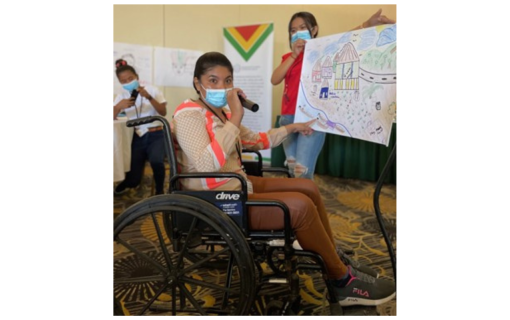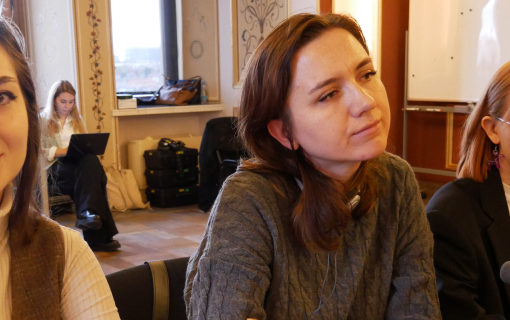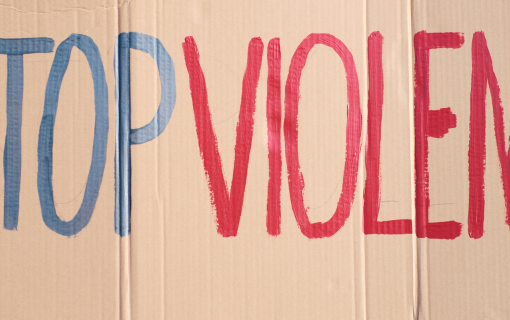Capacity Building to Election Security: Clearing the Path for Citizen Participation
Samia Mahgoub, IFES' chief of party in Burundi from 2009 to 2011, has worked on various aspects of the electoral process-from election management body training to election security to voter registration-throughout the Middle East and Africa. Currently chief technical adviser for the United Nations Development Programme in Libya, she talks to us about preparations for Libya's elections, her experiences in Burundi, quotas for women in politics and facilitating BRIDGE workshops (Building Resources in Democracy, Governance and Elections) - a modular professional development program with a focus on electoral processes.
IFES: You are currently in Libya working for UNDP - how are preparations going for the upcoming elections?
Mahgoub: Libya will witness its first elections since 1964. The upcoming elections are for a National Assembly, which will replace the current National Transitional Council (NTC) that is governing the country.
Preparations are going well, with the High National Electoral Commission (HNEC) concluding the first crucial phase of registering voters and candidates. The registration process for voters went well with a few technical hitches – normal for a new electoral management body with no electoral experience and one that has never organized an election. The number of registered voters at the end of the 21-day registration period has reached 2, 977,712 voters, representing 80 percent of 3.4 million eligible voters.
My hope is that the HNEC will find a way to address the right to vote for displaced people in the coming days. It will be important for that population to know where and how to vote after being displaced during the revolution. Otherwise, there will be difficulty in conducting an inclusive election with equal access for all.
Most important is that Libyans believe the elections will set the country on a path toward democracy and peace and will contribute to establishing rule of law, security and stability. There is substantial political will from all stakeholders to have a successful election.
IFES: When you were IFES' chief of party in Burundi, what did you learn from about ensuring peaceful elections? What has to be done for elections to be peaceful?
Mahgoub: My experience with IFES in Burundi was one of the best in my professional life. Working in the Great Lakes Region, specifically in a post-conflict country like Burundi, was a real challenge. IFES' program focused on assisting the electoral commission and civil society to organize five elections over a six-month period.
We started by providing technical assistance to the electoral commission, enhancing civil society, promoting the participation of women in the political and electoral process, and mitigation of violence related to elections.
As a chief of party, I learned that good management was vital to achieving our goal. I was surrounded by an excellent team from the beginning. Everyone was aware of what he or she needed to do, which allowed us to be more efficient and effective in our delivery of assistance and support.
Knowing the challenges we would face in the field, our main concern was how to mitigate election-related violence. As you know, elections are important in restoring democracy. However, elections can also divide the country even more.
Given the country’s history of violence, establishing the first early-warning system in a francophone country was a great idea. A joint initiative of about 10 national and international organizations, the early-warning system’s purpose was to monitor democratic principles and prevent election violence. Implementation of the project resulted from several sessions of analysis, exchange and debate on the methodology, tools and resources to be mobilized, both material and human.
In order to have peaceful elections, according to my experiences, three key elements should be taken into account: the timing of an election, a strong electoral management body and a fair electoral system accepted by all stakeholders.
IFES: Would you please share with us your best experiences as a BRIDGE facilitator?
Mahgoub: Last year in Tunisia, as project director for Electoral Reform International Services, I conducted six workshops focused on improving service delivery in six different cities in six weeks. The schedule was very tight due to the constraint of the electoral calendar.
It was my first time to conduct a workshop in Arabic on the topics of democracy, elections and governance. I had left Egypt more than 20 years ago when discussion of these issues was almost forbidden. I gained all my experiences by working in different countries, using French or English. I never used a democracy-based vocabulary in Arabic.
It was amazing to try and find my words in my mother tongue! Today, capacity development for conducting elections has become a major focus in Arab countries. BRIDGE represents a crucial instrument and should be adapted and used in all countries that have never been exposed to election management before. These workshops were an important step forward in the introduction and implementation of BRIDGE in the Arab world.
IFES: You have spoken about the disadvantages of having quotas for women in government. What do you feel is the most effective way of increasing gender equality in politics?
Mahgoub: First, let me rephrase it, I am not against quotas. I am completely for parity in political power, as in all areas of life. Women represent more than half of the population of the world and I do not understand why we are not allowed, in some instances, to exercise all of our rights.
Before talking about quotas in the political arena, we should first start by give women a more equal place in society. Culture, tradition and religion are interrelated, and I constantly look for more efficient methods to achieve a gender balance in political institutions based on these factors, not necessarily through quotas.
However, in the context of political rights and parity, experience shows that the quota system succeeds only when women are able and empowered to participate. That is, they are able to present themselves as viable candidates and are treated by the system and political parties as such. Unfortunately, most women elected through quotas are less motivated and less competent because these women are selected by political parties simply because they are women. These women start a political life with a true handicap and cannot push for change in order to get real power.
Having this type of woman in an elected position due to a quota system does not truly benefit the empowerment of women. Women should learn how to fight to get elected and know that, once elected, she represents the population. Politics is power and power is for the one who deserves it…no matter the sex of the politician.









